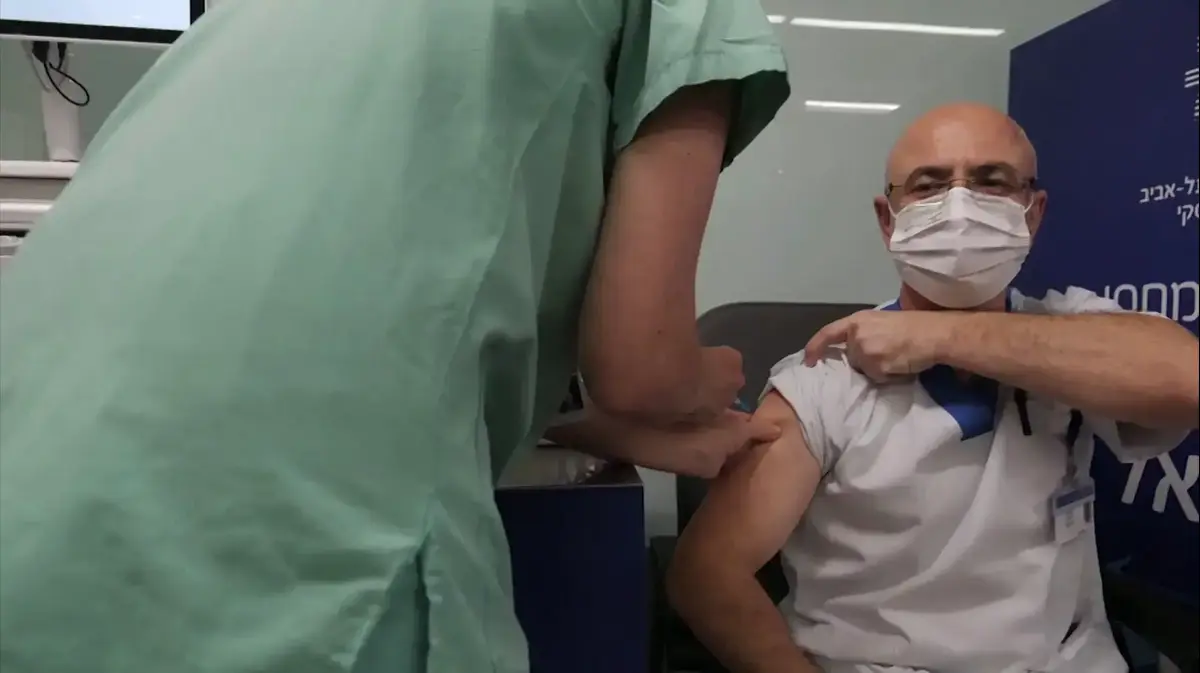Enlarge image
Workers in protective clothing carry a giant salamander believed to have escaped the Huanan Seafood Market
Photo: CHINATOPIX / AP / picture alliance / dpa
The Huanan Seafood Market in Wuhan was very quickly suspected of having been the driver of the corona pandemic as a virus thrower.
At the end of 2019, according to all that is known, the first people in the area around the market fell ill.
But according to the research by the World Health Organization WHO on the origin of Sars-CoV-2, there was no special evidence when the organization sent a team of experts to the Chinese city of millions.
The animal markets were already closed at that time.
A current study shows that what scientists have been denouncing for a long time is more likely to be true, and that such markets with the sale of wild animals are an ideal place for the spread of viruses.
A team led by the Chinese researcher Xiao Xiao from the Southwest China Wildlife Resources Conservation in Nanchong came to the results, published in the »Nature« branch »Scientific Reports«, rather by chance. He actually wanted to investigate ticks that transmitted a certain disease that occurred in the province and had already examined animal markets in Wuhan and documented the population of the species there until November 2019, even before the outbreak of the pandemic.
According to the study, the researchers counted 36,000 animals and 38 species. Among them were more than 30 that are actually under protection, for example badgers, which are not hunted in China and certainly not allowed to be sold, but were offered there at high prices. More than a quarter of the animals appeared to be from the wild and showed typical hunting injuries.
The keeping conditions of the animals, which the customers could have slaughtered directly at some dealers, were therefore bad. They had been squeezed into much too narrow cages, these were packed close together regardless of the species. These are precisely the conditions that are ideal for the development of zoonotic diseases, to which Sars-CoV-2 also belongs, and that scientists have long warned against: Wild and breeding animals are in close contact with each other, with humans in between - this creates the possibility of exchanging viruses.
The study is not proof for or against the spread of the animal market, at best it is an indication. But: "The WHO results were inconclusive for us," write the authors, referring to pangolins, which WHO stated in their report as intermediate hosts from which the virus could have spread to humans. At the time of the research in January to February 2021, the markets had already been closed for months, the study complained. The chance of finding virological traces was slim.
The question of the origin of the pandemic is still being debated.
Recently, there were again suspicions that the virus could have escaped from a laboratory.
The World Health Organization (WHO) did not find any evidence of laboratory origin during its research in China.
However, there was also the suspicion that the expert commission might not have had access to all sources during its work, and the thesis was not even examined in the last report from March.
So far, the experts assume that the virus developed in bats decades ago and then transmitted it to humans via a previously unknown intermediate host, possibly a pangolin.
However, the case is not yet closed for the WHO either, the hypothesis of a laboratory leak is to be investigated further.
Other scientists are calling for the same.
But some find it difficult or impossible to use genetic research to produce evidence.
Rejection for the researchers
Most recently, the US under President Joe Biden announced that it would carry out further investigations into the origin of the pandemic.
That could spark foreign policy tensions between the US and China.
The country's government had outraged any suspicions that the virus might have originated in a laboratory in Wuhan or that the origin of the pandemic might have something to do with research in the metropolis.
An inquiry by the FAZ to the researchers showed that even Xiao's small study could be a political issue.
According to them, they had problems getting the study published; the topic was too hot for some science magazines.
Although they submitted the study for the first time in February 2020, they received multiple rejections.
joe














